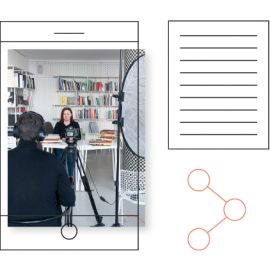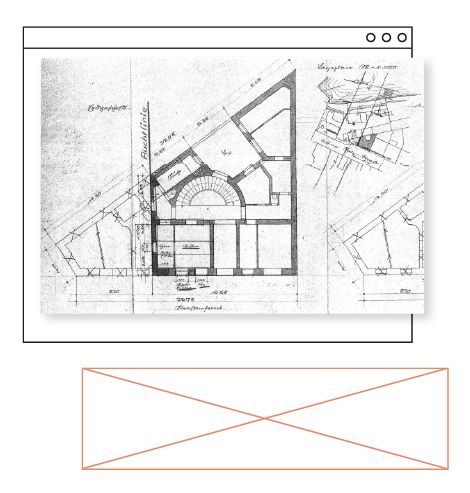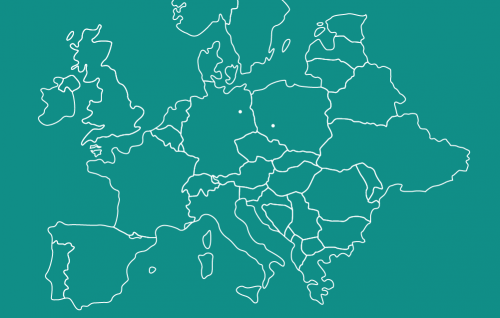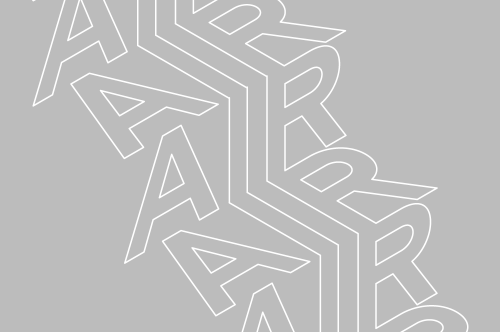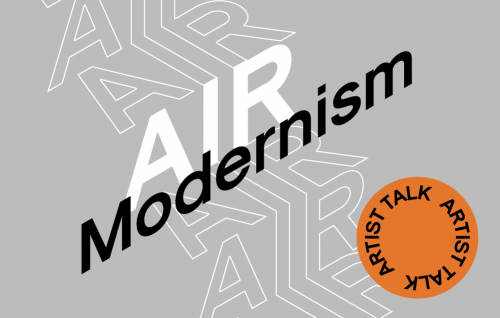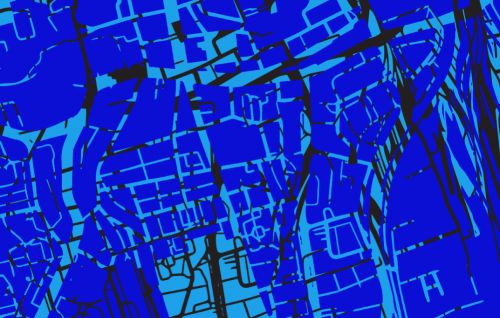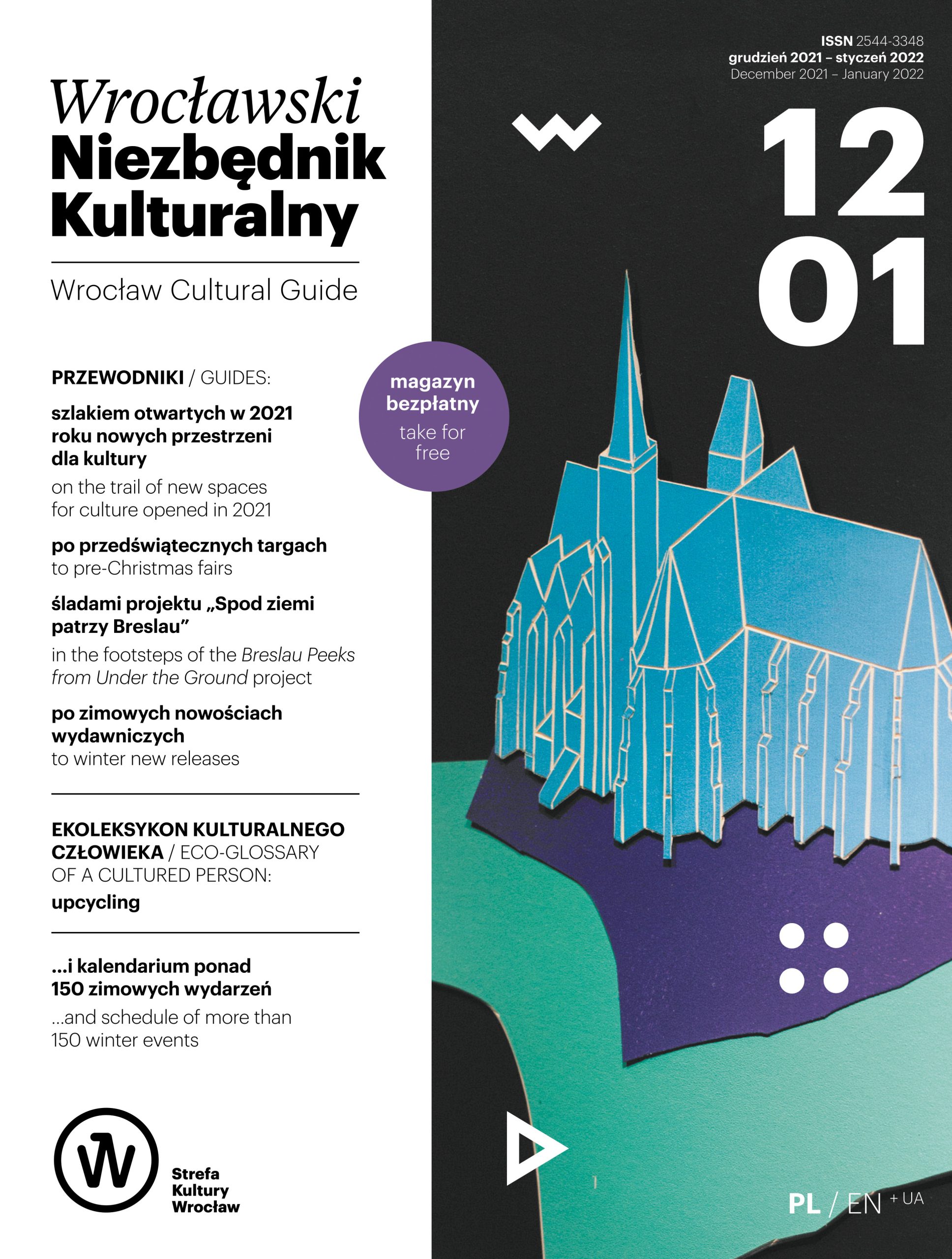Article also availalable inPDF
7 minutes read
Video library of a culture enthusiast
Production of a video guide as part of the Cardboard and Paper series in Barbara
In these difficult times broadcasts on Facebook and YouTube (i.e. live streaming), as well as already recorded videos of past events, or e-workshops in the form of instructional videos, and webinars (i.e. films with an active audience) concerning events that were scheduled – all of these became very popular.
Considering the unusual circumstances we find ourselves in, feel free to participate in the programme of Barbara venue prepared by the Culture Zone Wrocław. Video series such as “Shuffle” (discussions with artists concerning music), “City Academy” (sessions discussing the city), and “City Gardener Academy” (sessions discussing the flora) are broadcast live on Facebook profiles of PIK Wrocław and Barbara. You can also find old episodes of the “Cardboard and Paper” and “Let’s embroider!” series there.
Don’t forget about the happenings in Wrocław theatres. Wrocław Pantomime Theatre has plenty in store for you, for example Mimflix, which includes a theatrical series Cafe Panique, Actor’s home – diaries showcasing how the theatre’s actors spend the time in quarantine, as well as a series of 10 free tutorial videos – Pantomime step by step. The Capitol Musical Theatre also gives us opportunities to partake in the theatre. They’ve provided online versions of the Deaded in the mountains [pl. Śmierdź w górach] and Idiot plays. Also every Tuesday on the fanpage of the “Non-fiction theatre” project you can watch a live broadcast of the next episode of Plague Diaries series made by Grotowski Institute. The schedule includes for example interviews and reading of screenplays for spectacles, that the artists still prepare for despite the coronavirus pandemic (these will continue until the end of epidemic). The Stage Songs Review ended recently – this time purely in an online version. If you haven’t been following this pioneering festival television, don’t worry. Visit its Facebook page, where you can find all the materials necessary to experience this unusual edition of the festival.
Some of you undoubtedly miss listening to live music. Thus we encourage you to visit – based on your preference – the web pages of National Forum of Music and Reception. The former gives you the opportunity to for example watch videos from concerts. The latter offers online parties led by DJs – the Corona sanatorium (on weekends), as well as vocal-musical broadcasts – the Ganz Privat (every Thursday).
Keep reading!
If you prefer reading rather than watching, fear not – not everything is now a live broadcast. Municipal Public Library offers free access to literature as well as the option to use the Legimi database. If you need help navigating all the new titles, we recommend the reviews written by library staff. A similar guide has been prepared by the team of Postgraduate School of Cultural Animation and Library Studies (SKIBA) which expertly aggregated all repositories. The Ossolineum Publishing House does not disappoint either. Browsing the materials from the oldest and most renowned publishers in Poland will likely occupy you for the entire quarantine. As part of its Zoom in on the museum initiative the National Museum (and all of its branches) has made available a large selection of materials concerning exhibitions, artists and even specific pieces from its collection. If you visit the website of BWA Wrocław, in the “Biuro” magazine tab you can find all its press releases, including articles and commentaries discussing modern art. If you spend your quarantine reading up on history and the history of art, do keep in mind more recent chronicles of Wrocław – the Depot History Centre has provided its Wrocław stories articles.
Cultural education
Local cultural centres also have a lot to offer. Their videos include in particular workshops, tutorials and webinars. Library and Culture Centre FAMA in its Cultural centre in slippers project provides access to a series of lessons on playing the guitar, dancing, and arts and crafts. Centrum Kultury Zamek provides video broadcasts of music lessons (guitar, vocal, piano) that even small children can participate in. The ODT Światowid, as part of its Culture at home initiative, provides a series of video tutorials on ballet, playing the guitar and drums, and arts and crafts. The Wrocławski Klub Formaty has its On-line e-series on dance, pilates, yoga and chess. The Centrum Kultury Agora has provided online materials on playing the guitar, using the Lightroom programme, and even bedtime stories. The Kontury Kultury cultural centre provides online classes for example on 2D design. The workshops on photography, collage and handicrafts that Firlej cultural centre has thus far held at the Sąsiedzka Cafe, are now available on their Facebook page. The Wrocław Puppet Theatre has provided extensive resources about home education on theatre and the City Museum of Wrocław in particular supports teaching history and social studies by providing materials on subjects for elementary school pupils.
Wide open archives
An architectural building plan view one of the tenement houses in Nadodrze district from the archives of Museum of Architecture in Wrocław
While Wrocław institutions keep their doors closed, some of them decided to “open“ their archives. The new media fans will surely enjoy the WRO Art Centre website. You can find a whole range of archived performances, happenings, and audio and video art pieces. If you like modern art however, we recommend the Wrocław Contemporary Museum website. There you can browse through both the museum’s collection and the collection of the Society for the Encouragement of Fine Arts, Lower Silesia branch. The enormous amount of material provided there will help you pass the time in quarantine. The Museum of Architecture gave access to its building archives. All of it is yet to be digitised, however with a bit of luck you might be able to find construction plans for your own tenement. The Entropia Gallery, as part of its Entropy at home initiative, has provided access to the artists’ works and performance recordings. The Pan Tadeusz Museum gave access to the digital archive of Jan Nowak-Jeziorański, journalist and politician, who gave it as a gift to the Ossolineum Cultural Centre, which runs the museum. The archives include Jeziorański’s interviews and statements, as well as photos and videos.
Browsing archives is one thing. Right now however it is also a good time to create archives. There’s still time to participate in the Leśnica Social Archive initiative of the Centrum Kultury Zamek. Its goal is to collect materials from residents of the Leśnica district in Wrocław, such as family photos, that give insight to what the history looked like from their perspective. A similar project – The Recipes 2020 – is organised by the Municipal Public Library. It’s an archive of recipes created during the pandemic. The submission period is open until the end of April. So in May – when it is published – you can begin your own culinary experiments. The Komuny Paryskiej 45 Workshop finished collecting material for its own social archive. The goal of the Fashion back then, fashion today project was to collect pictures of Wrocław residents that showcase the transformation of fashion and its trends over the years.
Go for a walk without leaving home
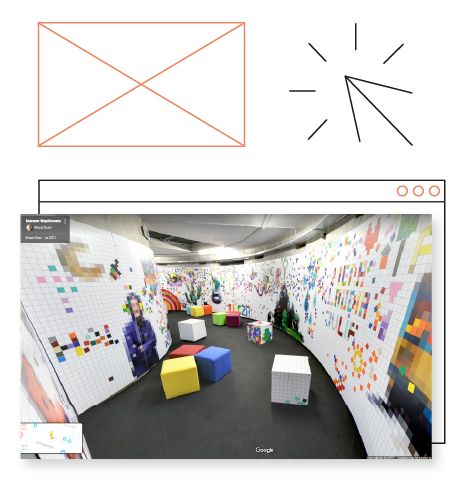
A virtual walk around the permanent exhibition in Wrocław Contemporary Museum
Some of you might be missing not only the classes and teachers, but the classrooms, halls, and the sheer atmosphere of cultural institutions. Take a virtual tour, to once again visit your favourites. Visit the websites mentioned earlier, such as Wrocław Contemporary Museum, National Museum and its branches, BWA Wrocław gallery, Pan Tadeusz Museum, Centrum Kultury Zamek (and its Illustrator’s wall), Depot History Centre and Centrum Kultury Agora, to experience exhibitions, meetings with experts, and even closing ceremonies in a very different way.
Hello? Can you hear me?
You might say that podcasts, which lost a bit of their popularity, are back in favour. To clarify, that means internet radio broadcasts, to which you don’t need to tune in live, but instead you can listen to at any time. Since everyone has a bit more free time nowadays, Wrocław Literature House started its own Prose Radio series of interviews with writers, available on Spotify. A series of workshops, part of the Culture Practitioners programme by Culture Zone Wrocław, now follows a similar approach. You can find podcasts describing the inner workings of the institution as well as details on programmes and cultural events for people with disabilities on Spotify and Soundcloud. While waiting for the June’s visual feast, that is the Survival Art Review, you can visualise the whole thing by listening Retrospective – a series of podcasts in which people involved in the organization of the review once a week talk about its editions. You can start with the current edition and the podcast of curator Ewa Pluta to “walk” around the City Port pumping station.
As you can see there’s plenty of online resources already available and there’s more being made. We encourage everyone to browse the websites and look around on your own – you don’t need to rely solely on the programmes of large institutions. The programmes of local NGOs and independent cultural initiatives are also worth checking out. Keep in mind, that every video and webinar you watch, and material you download, means supporting people in the culture sector during this difficult time. To participate in all these initiatives, all you need is a computer, tablet, or a smartphone, and obviously internet access.
Collected by: Natalia Romaszkan, Anka Bieliz

